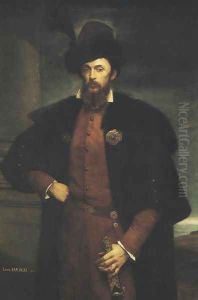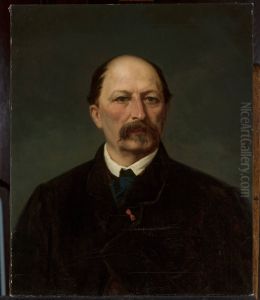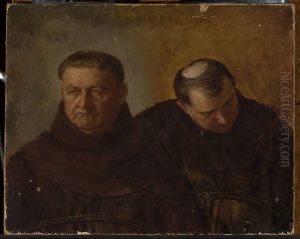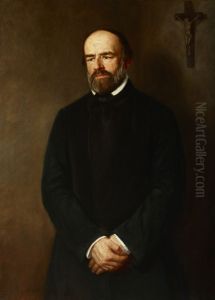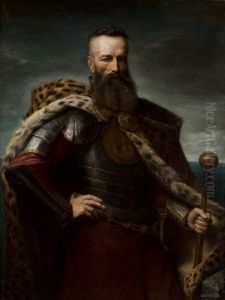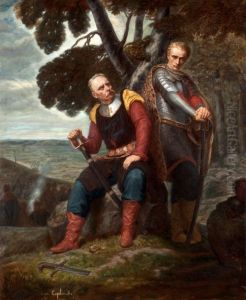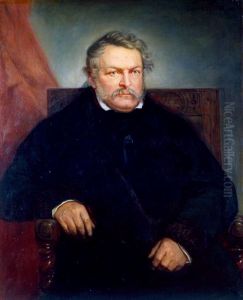Leon Kaplinski Paintings
Leon Kaplinski was a Polish painter known for his noteworthy contributions to the genre of landscape and portrait painting in the 19th century. Born on September 24, 1826, in Lviv, which was then part of the Austrian Empire and is now in Ukraine, Kaplinski grew up in a period of significant political and cultural change. Despite the challenges of the time, including the partitions of Poland, he developed a strong connection to his Polish heritage, which would influence his artistic work throughout his life.
Kaplinski pursued his education in art at the Kraków School of Fine Arts, where he was a student from 1844 to 1849. He was a contemporary of many prominent Polish artists and intellectuals of the time, and his early works were marked by a deep romanticism, reflecting the nationalistic fervor that was common among Polish artists of the era. After completing his studies in Kraków, Kaplinski traveled extensively, visiting various countries in Europe, including Germany and Italy, which further enriched his artistic vision.
His landscapes are particularly notable for their sensitive portrayal of the Polish countryside, capturing both its physical beauty and the emotional resonance it held for Poles during a time of national struggle. Kaplinski was adept at using light and color to evoke mood and atmosphere, and his paintings often featured historical or folkloric elements, underscoring his commitment to Polish identity and culture.
In addition to landscapes, Kaplinski was also an accomplished portraitist. His portraits are characterized by a keen observation of detail and a subtle rendering of his subjects' personalities. Despite his success as an artist, Kaplinski struggled with financial difficulties throughout his life, which were exacerbated by his deteriorating health in later years.
Leon Kaplinski passed away on March 8, 1873, at the age of 46. His death marked the loss of a significant figure in the Polish art scene of the 19th century. Although he is not as widely known as some of his contemporaries, Kaplinski's work remains an important part of the Polish artistic heritage, and his landscapes and portraits continue to be appreciated for their emotional depth and technical mastery.

